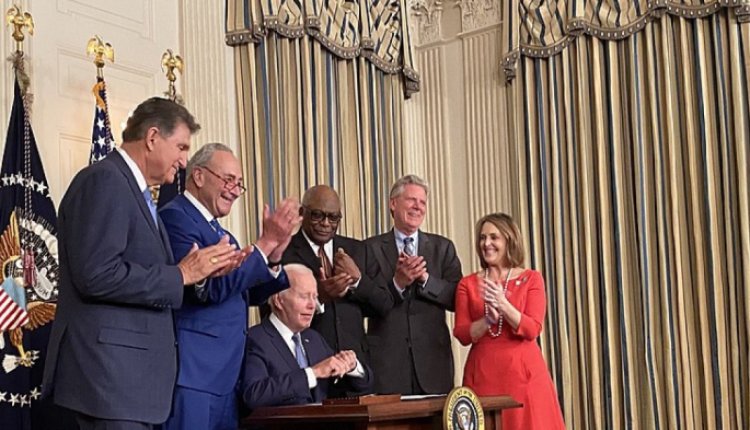TL/DR –
Joe Biden signed the Inflation Reduction Act in August 2022, a legislation considered “the most significant action Congress has taken on clean energy and climate change in the nation’s history”. The Act has led to the outsourcing of operations such as the production of electric vehicles. Critics argue the law is a “giveaway to China” and it’s benefiting Chinese manufacturers, while the administration claims it fosters billions in investment in EV manufacturing in the U.S. The Act’s impact on inflation has been described as “statistically indistinguishable from zero” by a report from the Wharton School at the University of Pennsylvania, while the Tax Foundation claims it could worsen inflation by restricting economic growth.
Inflation Reduction Act Impact and China’s Gain
In August 2022, Biden enacted the Inflation Reduction Act, a milestone in his tenure. White House declares this law as the biggest step ever taken by Congress on clean energy and climate change. Now, nearly two years later, this law benefits China significantly.
Pursuing the clean energy and climate change goals of the Act, the United States outsourced some operations, notably electric vehicle production, to its trading partners. This has led to substantial investments in Morocco by at least five Chinese battery manufacturers, reports Fortune.
New tariffs on Chinese vehicle imports introduced by the White House in May are intended to reduce China’s market influence in this sector.
“A Giveaway to China”
Biden’s administration eased some regulations on tax credits for electric vehicles, thus making more EVs eligible for up to $7,500 in credits. However, to be eligible, manufacturers couldn’t source critical minerals or battery parts from manufacturers where China and other “foreign entities of concern” control more than a 25% stake.
Senate Energy and Natural Resources Committee chairman Joe Manchin viewed these new rules as the White House’s endorsement of products “made in China”. Critics argue these rules favor China and will extend its EV dominance, reports Fortune.
The public policy research firm Rhodium Group argues that Chinese producers have increased investments in countries with whom the U.S. has free trade agreements, such as South Korea and Morocco, to overcome some IRA barriers.
Does the Inflation Reduction Act Live Up to Its Name?
A 2022 report by the Wharton School of the University of Pennsylvania evaluated the Act’s effect on inflation and found it to be statistically insignificant. It would modestly increase inflation until 2024 and then decrease it.
The study revealed negligible effects on GDP by 2031 and a 0.2% increase by 2050. The Tax Foundation suggests that the bill worsens inflation by restricting the economy’s productive capacity due to reducing long-term economic growth.
The report also highlighted that the Act’s increased spending could worsen inflation, particularly in the initial four years, as revenue sources take time to ramp up and the deficit increases.
Read More US Economic News

